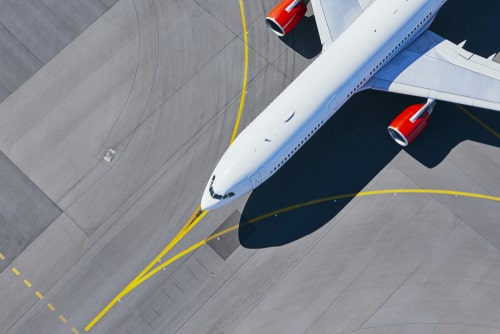
Leading aviation experts and companies warned that the industry will take five years or more to recover to the pre-coronavirus level of demand.
The warnings come as Airbus warned that the company is “bleeding cash”, British Airways has cut over 12,000 jobs or a 1/3 of its 42,000 strong workforce, Lufthansa is considering creditor protection as an alternative to state aid from the German Government.
At the start of 2020, Airbus had plenty of reasons to be cheerful. After Boeing’s year of woes with the grounding of the 737 Max 8, Airbus became the number 1 aircraft manufacturer on the back of rising orders, as airlines switched to Airbus.
Four months on, the coronavirus pandemic is crippling the company. Profits have fell by 49% in the first quarter of 2020 to €281 million and revenues fell by €2bn to €10.6bn.
The fall in finance was driven by a collapse in demand for plane orders, with Airbus unable to deliver more than 69 planes to customers, in the first quarter of 2020, due to the coronavirus pandemic. This is expected to rise as more airlines will negotiate delays in order to ease financial pressures.
Worsening finances have forced the company to cut production and furlough thousands of staff including 3,000 at its wing factory in Broughton, North Wales. Airbus employs over 135,000 staff worldwide. While the company is considering cutting employees, it has since said that it will review the situation in June, when the companies receives their internal medium-term financial outlook.
The global travel ban has affected airlines too. Over 17,000 aircraft are currently parked at airports around the world according to Ascend by Cirium. This represents a 1/3 of global fleet according to the BBC.
British Airways has planes parked in multiple locations, with planes stored at Heathrow, at its maintenance base in Cardiff, at regional airports such Bournemouth and at foreign airports such as Chateauroux Airport, France.
Many of BA’s competitors are struggling financially too. Norwegian has said that its fleet will be grounded for over 12 months. Virgin Atlantic is to seek a financial bailout from the Government. Southwest expects a 95% revenue drop in April and May. Delta expects a 90% drop in the same quarter too. Meanwhile, Air France – KLM received nearly €10bn in state aid from the French and Dutch Governments.
Job cuts are occurring across the industry too, with EasyJet laying off 4,000 staff and Qantas has put 20,000 staff on leave.
The manufacturers themselves are suffering with General Electric forced to cut 10% of its Aviation workforce, furloughing half of its US maintenance and repair employees in a $1bn cost-cutting exercise. A move that was forced after a 39% profit drop in Q1 2020 to $1bn and a 14% drop in orders for engines and parts in Q1 2020 to $7.5bn.
Many experts are predicting that the industry will return to an entirely different world. A big shift is the rise of video conferencing, which will threaten the airline’s lucrative business revenues.
Government imposed “social-distancing” at airports and planes could force airlines to run below capacity, which could jeopardise the budget-airline industry which relies on full passenger capacity to offset the cheap price.
Likewise, there are widespread concerns where passenger demand will take a long time to return. While domestic travel will pick up, it is long-haul travel that will take a significant time to recover, with many passengers concerned about travelling abroad.
Governments will be concerned about potential new diseases entering via air travel. A view that is supported by a 2015 US National Security Strategy briefing that cited growth in intercontinental air travel as a factor in the global spread of dangerous pathogens.
The UK Government is considering imposing a two-week quarantine to all passengers arriving in the country. Any such move would harm the industry which relies on seamless travel.
On a positive note, manufacturers are using the crisis to speed up production of more “carbon-friendly” aircraft. The UK aviation industry, including airlines, airports, and manufacturers, at the start of 2020 signed a commitment to cut net Carbon Emissions to Zero. In the UK, the aviation industry produces 71.1 million tons of Co2.
However, the industry, despite media attention, is not the largest emitter of Co2. Global textile production – mainly the production of cheap clothing of the so called “fast-fashion” industry emits 1.2 billion tons of Co2. This is more than the carbon footprint of international flights and shipping combined.
Airbus is bringing forward production of A321XLR, a long-range aircraft that can both deliver reductions in costs and emissions for the company.
The coronavirus pandemic continues to cripple the aviation industry at all angles. The main problem that everybody connected in the industry is concerned about is when the lockdown restrictions are eased, there are done so in a co-ordinated manner.
“What we are trying to do is have a global restart plan” said Alexandre de Juniac, director general of the International Air Transport Association (IATA). “The main challenge is how and when the different states will lift restrictions to travel”.
When the industry does restart, there is one thing for certain. They will be entering a radically different new world.

Related Articles
Aviation
Aviation
Aviation